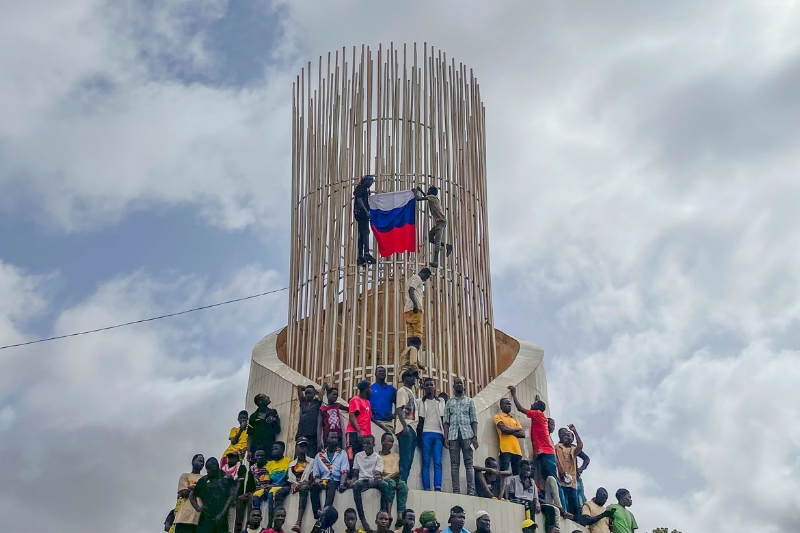Niger’s Shift Toward Russia
Niger’s announcement to terminate the military accord with the US marks a significant shift in its foreign policy, signalling a growing embrace of Russia’s influence in the region. This decision comes amid rising tensions between the US and the junta-led government in Niger, fueled by concerns over Russia’s expanding military presence in the Sahel region. The move underscores the complexities of geopolitical dynamics in northwest Africa and raises questions about the future of US-Nigerian relations.
US Concerns and Diplomatic Tensions
The decision to end the military agreement follows a tense meeting between Niger’s military junta and top US diplomatic and military officials, including Gen. Michael Langley. US officials expressed concerns about Russia’s military presence in Niger and the future of Air Base 101, a crucial hub for US counterterrorism operations in the region. The junta‘s decision to terminate the agreement reflects growing frustration with what it perceives as US interference in Niger’s sovereign affairs, exacerbating diplomatic tensions between the two countries.
Keep Reading
Implications for Regional Security and Geopolitics
Niger’s pivot toward Russia raises concerns about the erosion of US influence in northwest Africa and the broader Sahel region. With Russia strengthening military ties with Niger, there are fears that Moscow could establish a foothold in the Sahel, potentially destabilizing the region. The move also complicates counterterrorism efforts, as the US presence in Niger has been instrumental in combating extremist groups operating in the area. As geopolitical rivalries intensify, the Sahel region faces heightened uncertainty and security challenges.
US Response and Regional Ramifications
The US has expressed concern over Niger’s decision and remains in communication with the junta-led government. However, the termination of the military agreement raises questions about the future of the US military presence in the country. If forced to withdraw, it could have significant implications for regional security and counterterrorism efforts. The US drone operations from Air Base 101 have been crucial in monitoring threats in the Sahel region, and any disruption to these operations could embolden extremist groups.
Growing Russian Presence and Strategic Interests
Russia’s increasing presence in Niger highlights its strategic interests in the region, including access to natural resources and arms sales. The Kremlin’s efforts to court Niger’s military junta underscore its ambition to expand its influence in northwest Africa. By offering military equipment without the same human rights conditions imposed by the US, Russia presents an attractive alternative to Niger. The intensifying competition between global powers for influence in the Sahel region could exacerbate instability and conflict.
Future prospects and challenges
As Niger navigates its evolving foreign policy, it faces complex challenges and uncertainties. Balancing relations between the US and Russia while addressing domestic political dynamics poses significant challenges for the junta-led government. The decision to terminate the military agreement reflects broader geopolitical shifts in Africa and underscores the region’s importance in global power struggles. As the US reassesses its strategy in northwest Africa, it must contend with the growing influence of Russia and other external actors in shaping regional dynamics.

